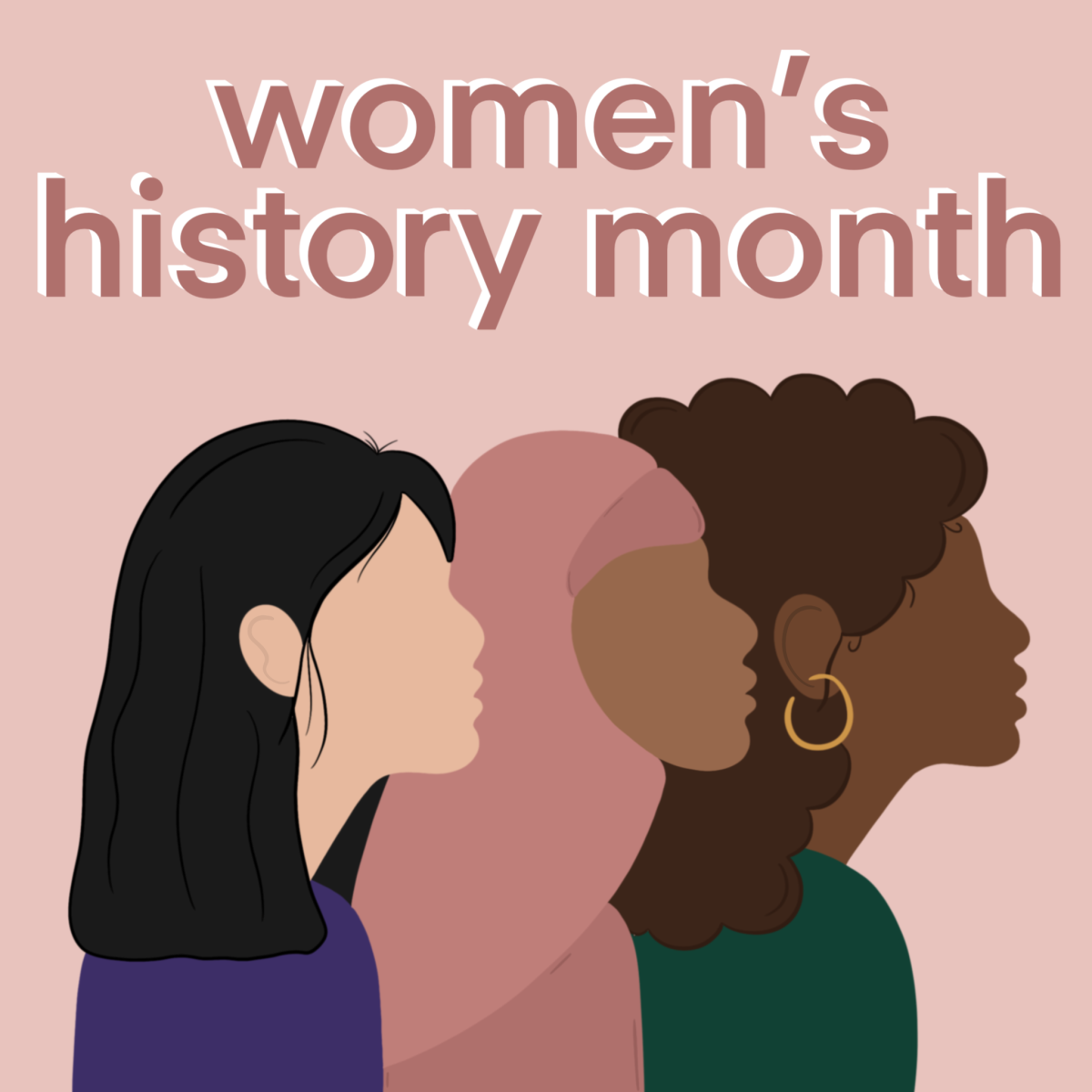Women have been shattering glass ceilings for centuries; Women’s History Month celebrates their accomplishments and inspires future generations of women.
March 1 marks the beginning of Women’s History Month, a 31-day period dedicated to learning about and appreciating the challenges women have endured to gain equal rights, both politically and socially. Roughly 100 years ago, women did not have the right to vote in America. They had no representation in Congress, could legally be discriminated against based on gender and made significantly less money than their male counterparts for doing the same job. Though women of all backgrounds still face certain disparities — which are escalated because of their color, shape, sexual orientation or gender identity — it is essential reflect on the progress made and the steps taken to reach this point.
Feminists for Reproductive Equity & Education, or FREE, President and public health junior Nimisha Srikanth said to her, Women’s History Month is a chance to amplify voices that have been historically quieted.
“Women’s History Month gives us the opportunity to recognize those who identify as women and their contributions to society and continue to advocate for them throughout the year,” Srikanth said.
Srikanth said FREE continually advocates for women’s rights, specifically their right to bodily autonomy.
“We’re an intersectional feminist organization that’s focused on advocating for reproductive justice, or the philosophy that any person should be able to have, not have and parent children in a safe environment,” Srikanth said.
Feminism 4 Aggies President and public health junior Mariana Salomao said she celebrates more than just the past during Women’s History Month.
“It’s a month that celebrates the past, present and future,” Salomao said. “I look at women in the past who have done things for us. Now, I look at women in the present; me as a woman and those around me who are women and what we’re doing. Then, I look at the future and how we can help women in the future make an impact.”
In order to further educate members, and in turn, educate other Aggies, Salomao said Feminism 4 Aggies often hosts events and meetings dedicated to female history and empowerment.
“We [had] a Women’s History Month meeting on March 8, and we [talked] about women from the past and the effects they’ve had and how women weren’t allowed to do a lot of things, but they still persevered through that,” Salomao said.
Feminism 4 Aggies member and English senior McKenna Fridye said she wishes people would truly recognize the part that women have played in moving our society forward.
“This month to me means pursuing equality even more, helping minority women and trans[gender] women to get the respect and equality they deserve,” Fridye said. “I’m astonished everyday hearing a new story where a woman was gaslighted or treated as less just because of their gender.”
Fridye said one woman who continually inspires her is her best friend’s mom, who has dealt with the death of her husband, her only daughter leaving for college and her son shunning her, all within the span of two years.
“She redecorated her whole house for a fresh start, got into gardening, fixed other house problems and is getting her daughter through college on her own,” Fridye said. “Her son cut her out of his life for unnecessary reasons, but she still loves him and would welcome him back into her life with open arms. That’s how kind and forgiving a person she is. She’s an amazing woman, and she would be an inspiration to anyone.”
Despite progress made, Fridye said there is much more to be done, as the wage gap and medical descrimination are still prevalent issues.
“Women are just expected to endure pain because when we say something, we’re seen as dramatic, while men are given all the pain relief they need even for simple procedures,” Fridye said. “We have a long, long way to go before we reach reasonable gender equality.”










